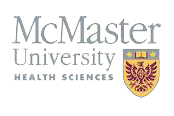1. Can the Academic Background of Medical Graduates be Detected During Internship
There was no detected difference in performance between the graduates who met the “traditional” admissions criteria (undergraduate GPA of 3.1 or greater on a 4-point scale and previous training in biology, general and organic chemistry, and physics), and those who lacked one or both of the prerequisites. Suggests that medical schools can expand their admissions criteria without fear of underperformance because of a lack of traditional academic preparation for medical school.
2. Investigating the utility of a GPA institutional adjustment index.
Grade inflation and institutional variation in GPA can threaten its predictive value. This paper reports methods of adjusting GPA to increase its congruence with other cognitive measures. An alternative would have been a multi-level model with Institution as a clustering factor and creation of individual slopes for GPA.
Between students who were chosen based on their MCAT scores and GPA and students who were chosen based on information that also included basic demographic data, information on extra-curricular activities, avocational interest, work experiences, and letters of recommendation, there was no difference in respect to their academic standing at the close of their sophomore year.
4. Reliability and Validity of Admissions Tools Used to Select Students for the Health Professions
Pre-admission overall grade point average is the best predictor of academic performance in all of the health professions. The MCAT is a good predictor of performance of medical students in terms of in-course grades and licensing examination scores but a similar test does not exist in the other health professions. Controversy remains as to the value of personal interviews and written submissions as selection tools.
5. Some Predictive Implications of Premedical Scientific Competence and Preferences
Ratings and adjectival descriptions of premedical students with above average scores on the four measures (MCAT scores, premedical grades in scientific subjects, preference for scientific subjects, and an equally weighted composite of these three) revealed them to be narrower in interests, less adaptable, less articulate, and less comfortable in interpersonal relationships than their lower scoring peers.
